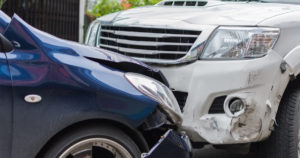Car Crashes Spike During Coronavirus
June 5, 2020 Although generally speaking the roads have been quieter since the United States entered a widespread shutdown in response to COVID-19, public safety agencies say that automobile crash death rates are spiking in several states. While many officials say they initially believed fatalities would dip during the pandemic, the opposite is happening. In many cases, speeding and distracted driving are culprits behind these deadly accidents.
Although generally speaking the roads have been quieter since the United States entered a widespread shutdown in response to COVID-19, public safety agencies say that automobile crash death rates are spiking in several states. While many officials say they initially believed fatalities would dip during the pandemic, the opposite is happening. In many cases, speeding and distracted driving are culprits behind these deadly accidents.
According to the National Highway Traffic Safety Administration (NHTSA), somewhere between 35,000-40,000 Americans die in car crashes every year. That totals more than 100 deaths every day, and another 2 million people suffer permanent injuries. Because car accidents pose a considerable threat to public health, taking steps to reduce the number of accidents that happen is crucial.
Speeding and Distracted Driving
No matter how quiet the roadways may (or may not) be it is critical that driving safely and responsibly remain priorities. Some states have seen a growth as high as 146% in crash death rates, and officials say that more individuals are driving at excessively high speeds now than before. Some states report that death rates have not increased, but that they have stayed the same despite the fact that there are roughly 50% fewer cars on the roads. Now that some counties are cautiously beginning to reopen, law enforcement is preparing to see a sudden spike in traffic and potentially even higher numbers of car accidents resulting in preventable injuries and deaths.
Data consistently shows that when individuals operate vehicles at higher speeds, they have less reaction time and that greater numbers of accidents and fatalities occur. Obeying posted speed limits, practicing defensive driving, and not tailgating vehicles are all important steps to take that help prevent these accidents from happening. Some states are also planning to put more patrolmen and women on roadways in hopes that an uptake in police presence will serve as a sobering reminder to all motor vehicle drivers. When you get behind the wheel, be sure to obey posted speed limits and to observe all directives in active or even seemingly inactive work zones.
Just like speeding, distracted driving is also 100% avoidable. According to the National Safety Council (NSC), both new and existing technologies can act as deadly distractions while driving. That means that cell phones as well as audio systems, infotainment dashboards and hands-free navigation systems can – and do – act as fatal forms of distraction when a person is behind the wheel. As the NSC puts it: “Make no mistake. This multitasking technology is about convenience, not safety”, so even when drivers believe that using hands-free technologies make them immune to distracted driving, the truth is quite the opposite.
The general rule of thumb is that there is no safe way to use a cell phone and to drive at the same time. That means that if you need to read a text, answer or make a phone call, or even to change the music, you need to pull over somewhere that is legal and safe to do so. Taking a pledge to not engage in any distracted driving behaviors when behind the wheel is another good step that licensed drivers – and teens who are nearing licensing – can take to reduce deadly car crashes from happening. And as always, it is critical to wear a seat belt.
If You Were In A Car Accident
If you were in a car accident, the first step you should take is to call the police. Even if you do not think you are injured, do not refuse medical care. Sometimes people have so much adrenaline going from the trauma of being in an accident that they fail to notice their injuries at the time of the event. If you do not need immediate medical attention, gather as much information at the scene as you possibly can. This includes potential witness information, the at-fault driver’s insurance and contact information, and photographs of the scene, damages, and physical injuries. Before leaving, be sure to request the claim number for the accident report from the police.
The other driver may be liable for injuries and damages that you sustain. If you would like to learn more about how to file a personal injury claim, someone at our firm can help. Please contact a representative online now.
Philadelphia Personal Injury Lawyers at Galfand Berger, LLP Representing Injured Individuals Since 1947
With offices located in Philadelphia, Bethlehem, Lancaster, and Reading, we serve clients throughout Pennsylvania and New Jersey. To schedule a consultation, call us at 800-222-8792 or complete our online contact form.
 Google Screened
Google Screened
